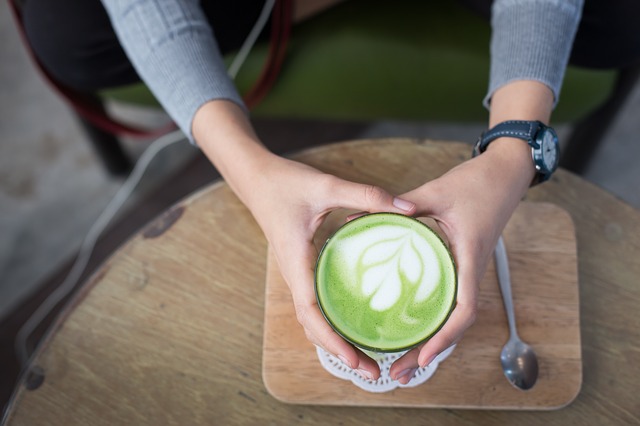
(Source: Pixabay)
Are you thinking about trading in your stim-heavy pre-workout for the natural, fat-burning benefits of green tea? If not, this article might make you reconsider.
While it might not hit you with as much buzz, the humble leaf could actually speed up your weight-loss progress. That’s why so many people are turning to it as a less intense tool for getting the most from their workouts.
Green tea has been drunk for thousands of years. Some enjoy a cup for the cancer-fighting antioxidants, whereas others prefer the focused energy. Now, more than ever though, fitness enthusiasts are turning to it for fat loss.
But how does drinking green tea before your workout actually boost weight loss?
In this article, we’ll explain how.
Green tea helps unlock fat from cells
Inside green tea are tons of antioxidants that protect your cells from damage. They fight to neutralize free radicals, restricting them from causing complications like aging, inflammation and even cancer.
Green tea’s main antioxidant is a catechin called ECGC, which according to some studies helps boost the effects of fat-burning hormones. The key one ECGC effects are noradrenaline – by holding back enzymes, the catechin inhibits the hormone[1].
Because these restrictive enzymes are unable to act, noradrenaline is allowed to work more freely. As a result, it speeds around the central nervous system to promote better fat breakdown in your cells[2].
The EGCG and caffeine effect
Have you ever drunk green tea and felt a little more alert, awake, and focused? If so, you mostly have its small amount of caffeine to thank for that.
Caffeine is a stimulant, and similar to EGCG it causes the releases of a fat-breakdown-promoting hormone. Instead of noradrenaline, though, it’s epinephrine – aka adrenaline.
Interestingly, one of the epinephrine’s roles is to trigger signals that tell your fat cells to break down their contents[3][4]. It’s for this reason some scientists speculated that EGCG and caffeine could work together to burn fat[5].
Fortunately, green tea contains both ECGC and caffeine, which is why it’s such a popular ingredient in fat-burning supplements. But to get the effect of multiple cups from a small capsule they use an extract rather than the standard, ground-up leaf.
Green tea leaves are no match for their extract when it comes to catechin and caffeine content.
The women’s fat burner Hourglass Fit, for example, uses a whole 500 mg of total green tea extract. According to the product website http://www.hourglassfit.com/en-gb/, it’s also standardized to 45% EGCG too, which would usually require a lot of drinking for you to get through tea alone. Naturally, a lot of women prefer supplements because they can be easier.
Effects boosted during exercise
People have been brewing and enjoying green tea for hundreds of years. Yet, it’s only recently that we’ve really started to understand its ability to make us leaner.
As a fitness fan, you’re one of the lucky ones who can experience the full benefit of its power. It’s all down to green tea’s ability to enhance fat oxidation – especially during exercise.
Fat oxidation is the process by which the body unlocks fuel from fat and combines it with oxygen to produce energy. Therefore, when fat oxidation increases, so do the efficiency of drawing energy from your fat stores.
According to one study from 2005, the catechins in green tea have the ability to significantly boost fat oxidation. The researchers also found this happens when people were at rest too, not just during a workout.
However, when these people did take green tea extract with exercise, the catechins seemed to increase fat oxidation even more[6].
Another study from 2008 then went on to support this claim. What this second team of researchers saw was that when men who took a green tea extract supplement, they burned 17% more by the end of a workout than those that didn’t take it[7].
Just like the study from three years earlier, these scientists uncovered just how potent the humble leaves could be for accelerating weight loss.
Green tea can ramp up your metabolic rate
If we were to go over all the ways green tea could help you lose weight, we’d tell you to grab a brew and sit down for the long haul. But there’s just one thing we simply cannot miss out – green tea’s ability to ramp up your metabolism.
There’s a lot of evidence out there showing that both green tea and green tea extract supplements can boost your metabolic rate[8][9][10]. Yes, that’s extra calories burned by the end of the day, even if you’re just resting.
Although the effects might not contribute a huge amount to your daily energy expenditure, they can still add up over time. A small hike of 4% could still be a difference of 80 calories a day or 560 over a week.
Plus, even though the studies cited above didn’t last for long, other research says that green tea could benefit weight loss in the long run.
According to one paper, green tea’s influence on metabolism and weight management lasted for the full length of their three-month study[11]. After the test group lost their initial weight, green tea seemed to help them maintain.
Here’s one thing to keep in mind though: there’s a catch to losing weight. You must be in a negative energy balance to tap into any of your stored body fat for fuel. After that, the calorie-boosting and fat-burning compounds of green tea should be able to deliver their full effect.
Given the amount of evidence out there, it’s easy to see how green tea could add an edge to your workouts. Why not add it to your weight-loss routine today? (See also: 6 Reasons Why You Should Drink Tea Every Morning)
About The Author:
Stacey Smith is the freelance health writer. She is passionate to write about women’s health, dental health, diabetes, endocrinology and nutrition and provide in-depth features on the latest in health news for medical clinics and health magazines.
[1] https://www.ncbi.nlm.nih.gov/pubmed/12695345
[2] http://www.sciencedirect.com/science/article/pii/S0031938410000703
[3] https://link.springer.com/article/10.1007%2Fs10068-010-0151-6
[4] https://www.ncbi.nlm.nih.gov/pubmed/11815511
[5] https://www.ncbi.nlm.nih.gov/pubmed/10702779
[6] http://jhs.pharm.or.jp/data/51(2)/51_233.pdf
[7] https://www.ncbi.nlm.nih.gov/pubmed/18326618
[8] https://www.ncbi.nlm.nih.gov/pubmed/10584049
[9] https://www.ncbi.nlm.nih.gov/pubmed/16176615




